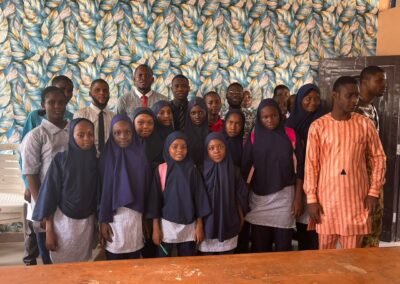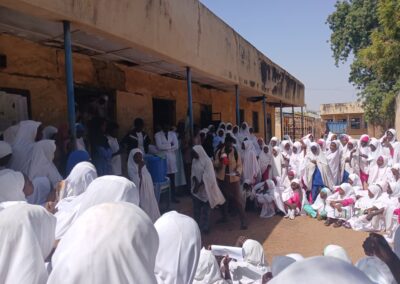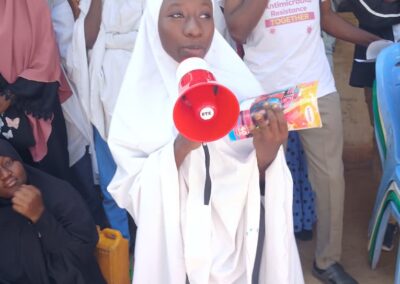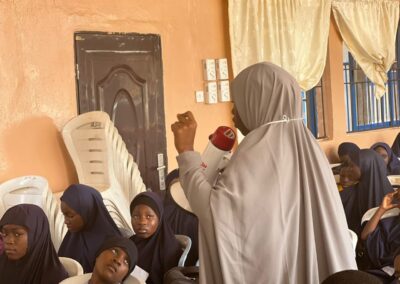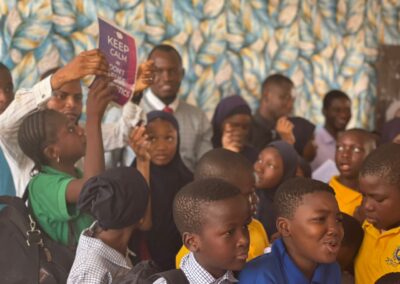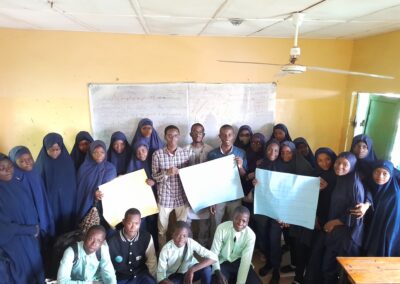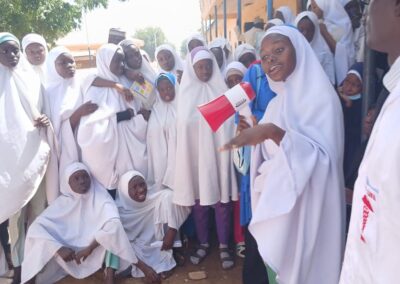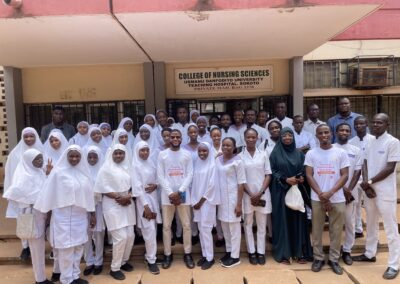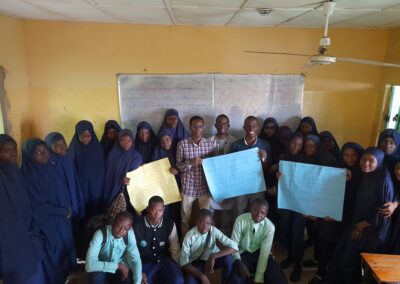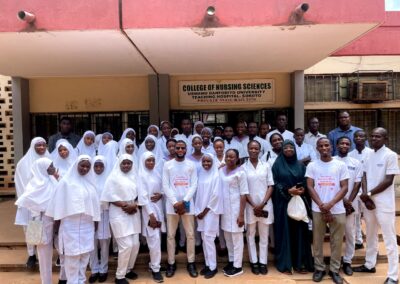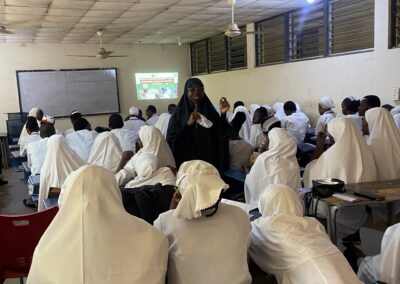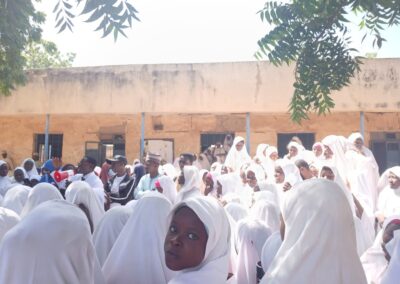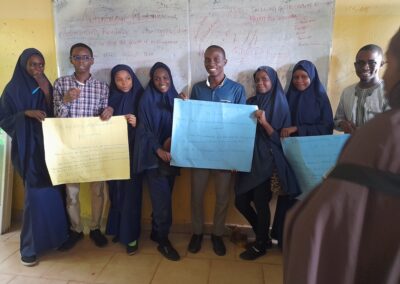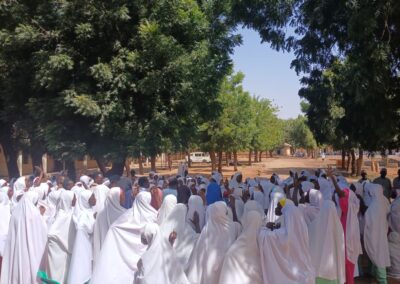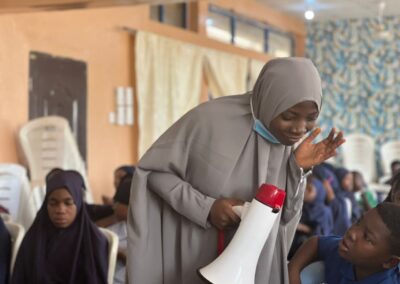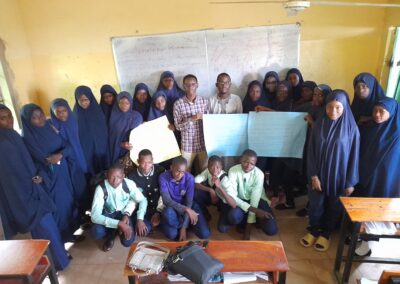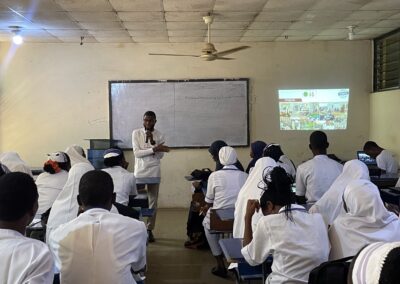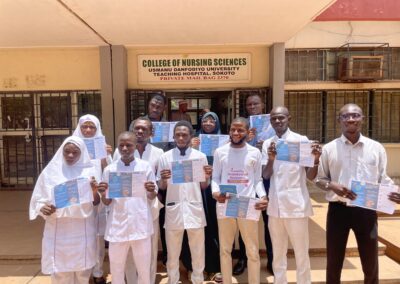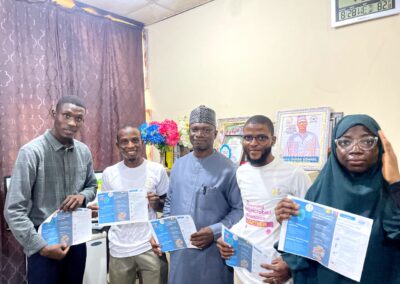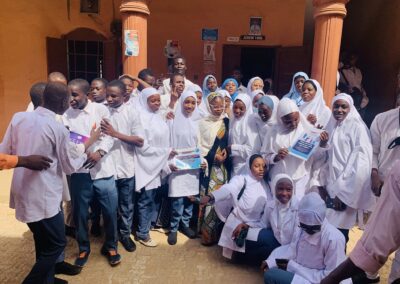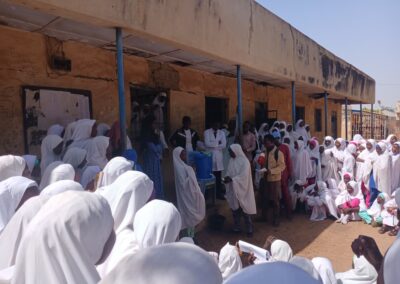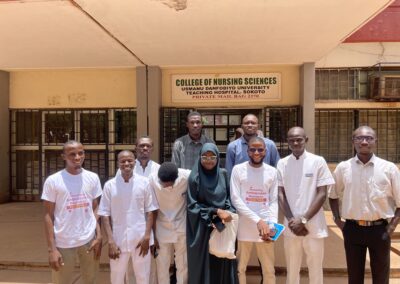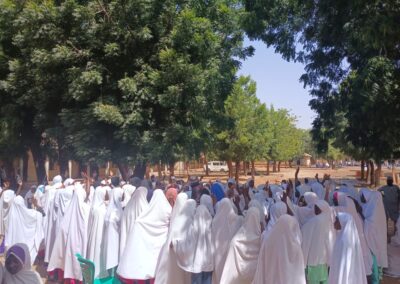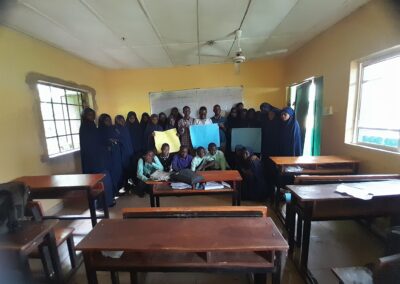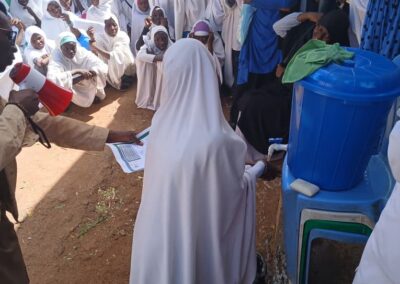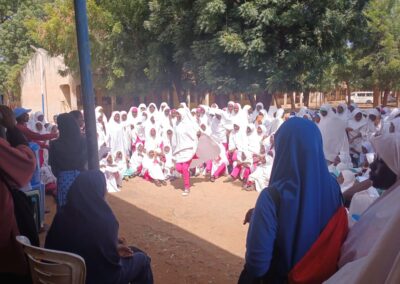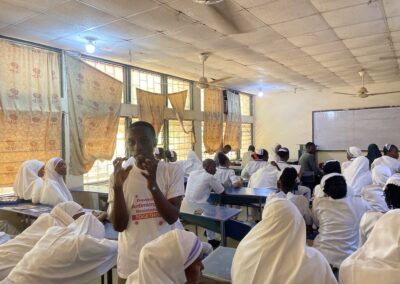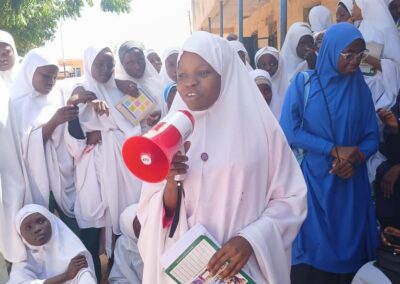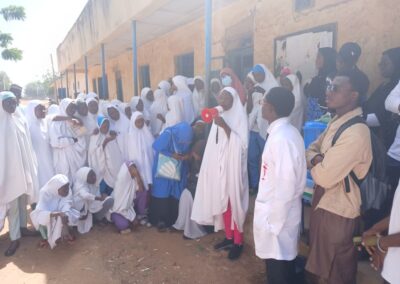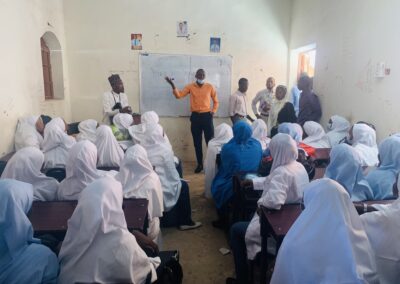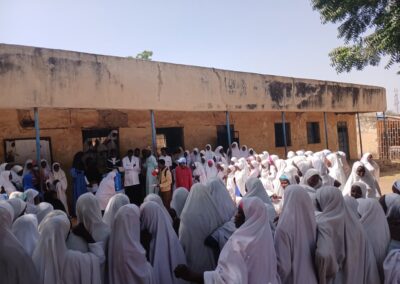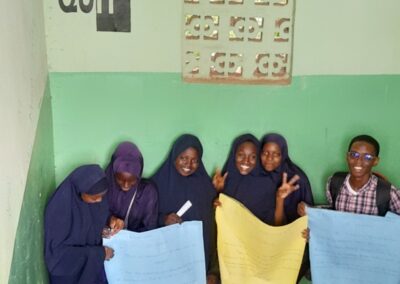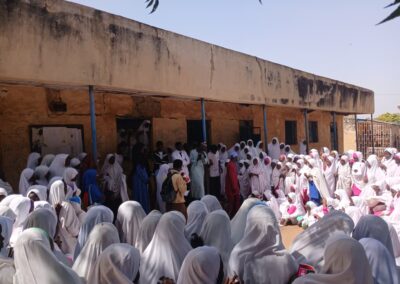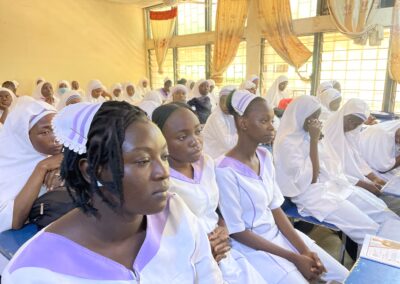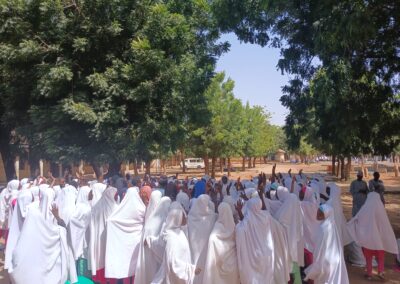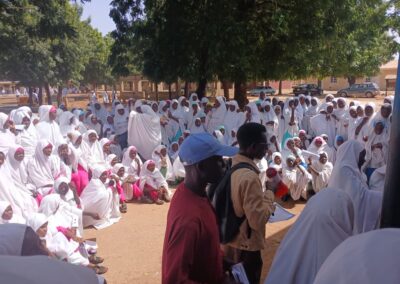School Based Campaign
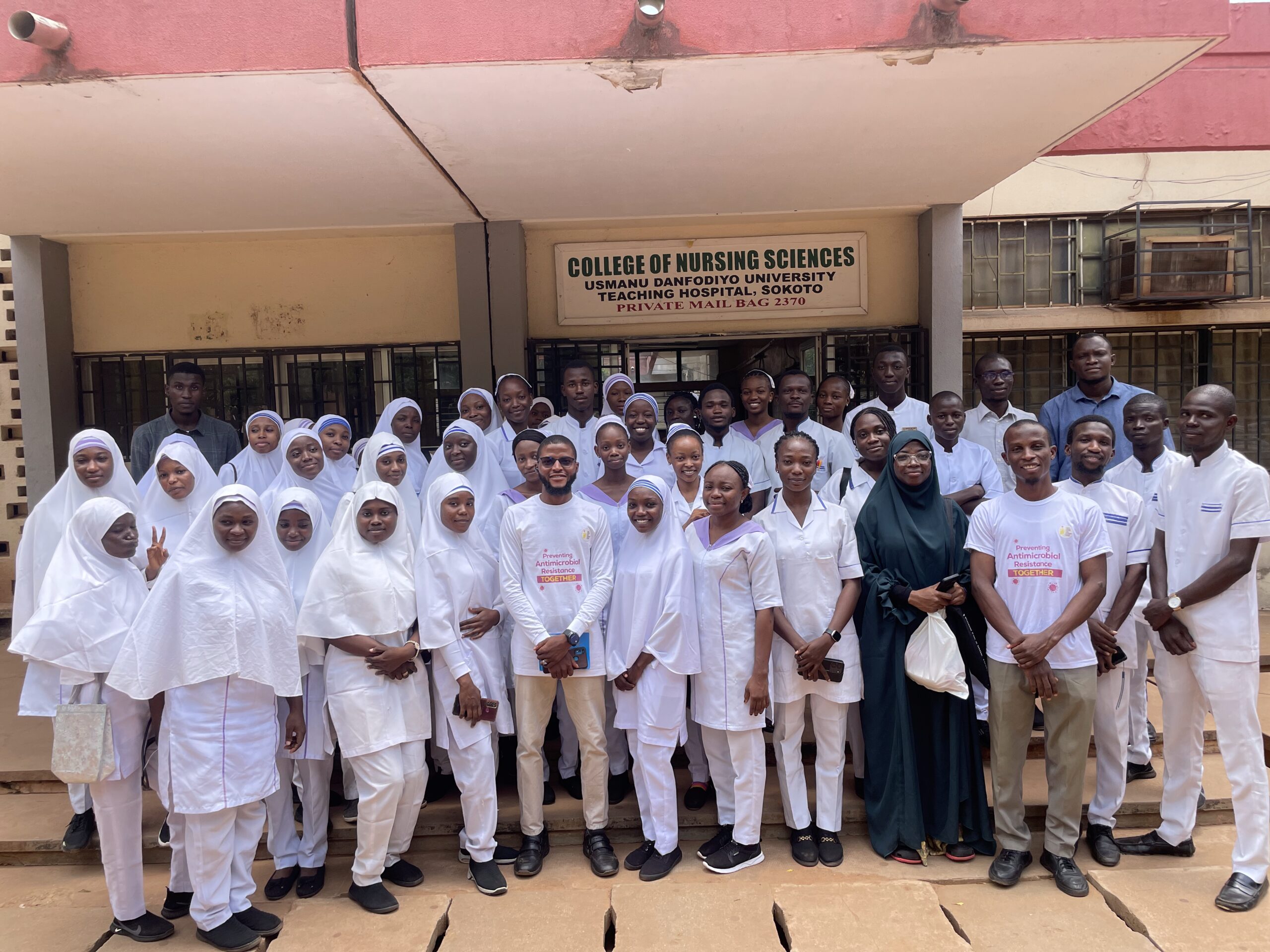
At UDUYARS, we believe that antimicrobial resistance (AMR) education must begin early. Our school-based campaigns are designed to deliver accurate, relevant, and relatable health information to children, adolescents, young adults, and professionals in training, preparing them to be responsible stewards of antibiotics and frontline agents of change in their communities. We have reached over 5,000 students across over 10 secondary and post-secondary institutions, including over 1,000 young girls and women.
We partner with educators, schools, colleges, and learning centres to deliver interactive and practical sessions on AMR, responsible antibiotic use, WASH and infection prevention. Our team adapts communication strategies in each school to match the students’ age, comprehension level, and cultural context. We also deliver hands-on simulations where students learn practical skills for preventing infections, practising hand hygiene, and understanding how misuse of antibiotics affects everyone.
“Before UDUYARS came, we had never heard of AMR in our class. Now I tell my younger siblings why they should not take antibiotics without visiting the doctor.”
— Fatima, a student from Hafsatu Ahmadu Bello Model Girls School
Our outreach spans both public and private institutions, including:
- Caliphate School of Health Technology
- College of Nursing Sciences, UDUTH
- Federal Goverment College Sokoto
- Brilliant Footstep International Academy
- Evergreen Schools
- Hafsatu Ahmadu Bello Model Girls Arabic Secondary School
- Government Girls Islamic Science College, Shuni
- Modibbo Adama Girls Arabic Secondary School, Maruda
- Umi Hasal Basic Secondary School, Sabon Birni
- Government Girls Secondary School, Illela
- Government Girls Commercial Secondary School, Tambuwal

